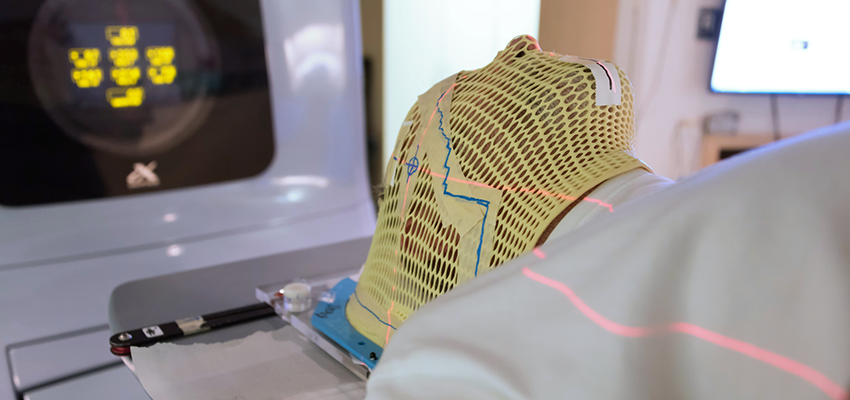Radiologic Sciences Instructor Receives National Research Grant
Posted on February 26, 2024 by CAHP

The American Society of Radiologic Technologists Foundation recently announced an award of a $10,000 grant to Jacob Manning, radiation therapy instructor in the Department of Radiologic Sciences. Manning will be leading a team of investigators to look for harmful bacteria on thermoplastic immobilization forms, or masks.
Forms are medical devices used to position patients keeping them perfectly still during a radiation therapy treatment session. Radiation therapy or radiotherapy uses beams of intense energy to kill cancer cells or slow their growth by damaging its DNA. Immobilization forms are heated and custom formed to the patient’s body profile for targeted therapy.
The yearlong study will determine what types of harmful bacteria are present on head-only masks used during treatment of head and/or neck tumors. Attached bacteria on contaminated masks pose a threat of infection to radiation therapy patients. Routine mask cleaning by using wipes containing 70% isopropyl alcohol may not eliminate all of them.
The interprofessional team also includes, Dr. Terry Ravine, associate professor of biomedical sciences, Teresa Barnett, microbiology supervisor in a clinical lab at USA Health University Hospital, Dr. Shannon Tyler, infectious disease physician and associate professor of internal medicine at USA Health, and Dr. Madhuri Mulekar, professor and chair of the Department of Math and Statistics.
This study represents a continuation of one started 10 years ago by Patricia Brewer, former program director for radiation therapy. It all began over a simple question asked by an infection control nurse to Brewer about a cloudy water bath used to heat patient forms. Was it contaminated?
Since then, ten peer reviewed publications on this subject have resulted along with two Harold Silverman Distinguished Author Awards in 2014 and 2017 for best paper in the ASRT scholarly journal Radiation Therapist.
Creating a better understanding of the dynamics of bacterial associations with thermoplastics has two large benefits. First, determining the types of bacteria present on patient masks, over time, will show what disinfectant(s) is needed to eliminate them before a stored mask is reapplied to its patient. Second, sharing the results with thermoplastic manufacturers will help them design new materials that are more unfavorable to bacterial attachment. Both goals will help reduce the potential for patient infections.


